
Biomaterials
We research substances engineered to interact with biological systems for a medical purpose, including therapeutics (treat, augment, repair or replace a tissue function of the body) and diagnostics. These can be derived either from nature or synthesised utilising metallic components, polymers, ceramics or composite materials.
Research in this area
Related research groups
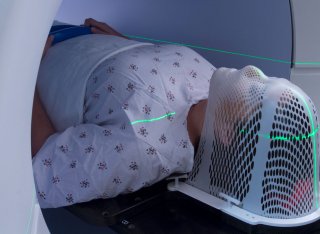
Cancer Research Network
A cancer research network has been established to provide university-wide cohesion in this area.
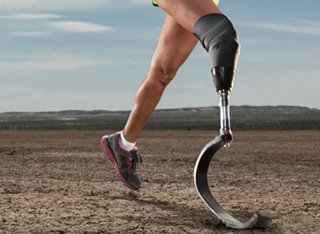
Centre for Biomedical Engineering
Researching the application of engineering and technology to problems in medicine and biology.
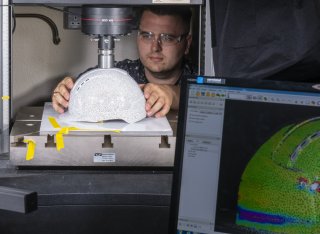
Centre for Engineering Materials
Providing world-class analysis of ceramics, polymers and metals, as well as composite materials consisting of two or more of these materials using their in-house facilities.
Researchers

Dr Daniela Carta
Senior Lecturer in Physical Chemistry
About my research
Areas of specialism: Bioresorbable phosphate-based glasses prepared via sol-gel and coacervation for biomedical applications. Controlled delivery of therapeutic molecules.
Medical and health indications and disease stages: Regeneration of hard tissues (e.g. bones, teeth, and soft tissues (skin), treatment and regeneration. Antibacterial activity (controlled delivery of metallic ions).
Associated research centres and groups: The Discoveries Centre for Regenerative and Precision Medicine at UCL, School of Engineering and Applied Science at Aston Institute for Materials Research, School of Physical Sciences at University of Kent, Materials Research Institute at Queen Mary, Department of Chemical and Geological Sciences at University of Cagliari.
Research funding and collaborators: EPSRC, Royal society, Fourth State medicine Ltd.

Professor Carol Crean
Professor in Physical and Materials Chemistry
About my research
Areas of specialism: Biomaterial, nano fabrics, fibre and textile electrodes, wearable chemical and biochemical sensors.
Medical and health indications and disease stages: Wound management, pH sensing, drug monitoring, cortisol measurement
Facilities: Raman Spectrometer.
Associated colleagues: Dr Eirini Velliou, Dr Paola Campagnolo, Dr Suzie Hingley-Wilson, Professor Debra Skene, Dr Radu Sporea, Dr David Birch.
Research funding and collaborators: EPSRC, Newton Trust and British Council, Royal Thai Government, Kymira, Nottingham Trent University, University of Nottingham, Surrey and Borders Partnership NHS Foundation Trust, University of Wollongong.

Professor Robert Dorey
Professor of Nanomaterials
About my research
Areas of specialism: Design and manufacture of smart surfaces and devices, sensors, ultrasound, actuators, and energy harvesters.
Medical and health indications and disease stages: Sensing and quality of life for prevention, diagnosis, and recovery.
Associated research centres and groups: Printing Applied Research Knowledge (SPARK) Hub, School of Biosciences and Medicine, School of Veterinary Medicine.
Research funding and collaborators: EPSRC and Innovate UK.

Dr Izabela Jurewicz
Senior Lecturer in Soft Matter
About my research
Areas of specialism: Development of scaffold bio-nanomaterials, which can act as templates for tissue regeneration, to guide the growth of new tissue. Adaptive carbon nanotube based scaffolds for cartilage.

Dr Peter Roth
Senior Lecturer in Applied Organic/Polymer Chemistry and School Postgraduate Research Director
About my research
Areas of specialism: Biodegradable polymers and polymer nanoparticles.
Medical and health indications and disease stages: Drug release and delivery applications, e.g. for cancer therapy and treatment.
Associated research centres and groups: School of Chemistry and Chemical Engineering, Polymer Chemistry research group, Bioprocess and Biochemical Engineering group.
Facilities: Specialised equipment for the characterisation of molecules and polymers includes (400 and 500 MHz) NMR spectrometers and a state-of-the-art chromatographic suite, including a triple-quad LC-MS, size exclusion chromatography, and several GC-MS instruments.
Research funding and collaborators: DCSA and VCSA scholarships.
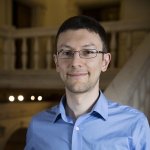
Dr Marco Sacchi
Associate Professor and Royal Society University Research Fellow in Physical and Computational Chemistry, Theme Leader in Sustainable Energy and Materials Research
About my research
Areas of specialism: Modelling of quantum effects in DNA mutations and repair mechanisms. Quantum Biology CDT with research directly relevant to fundamental understanding of health-related phenomena (DNA mutation, photoactivated DNA repair, dynamics of dehydrogenase).
Medical and health indications and disease stages: Immunology and antimicrobial resistance, [ also DNA mutations (physics for life with application to Cancer research); prevention, fundamental understanding of life phenomena (Quantum Biology), improving treatments (for example prosthetic) by designing or optimising new materials.
Associated research centres and groups: Health and Food research, Leverhulme Centre for Quantum Biology.
Research funding and collaborators: Leverhulme, Tier 1 and Tier 2 national high performance computing facilities and to local clusters (Eureka), Neutron and Helium-Scattering experimental groups and facilities (Cambridge, Graz, ILL).
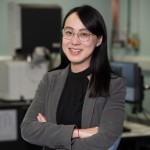
Dr Tan Sui
Associate Professor (Reader) in Materials Engineering
About my research
Areas of specialism: Bioinspired composite materials for dentistry.
Medical and health indications and disease stages: Dentistry.
Associated research centres and groups: Centre for Engineering Materials, Centre for Biomedical Engineering, Advanced Technology Institute.
Research funding and collaborators: EPSRC, University of Birmingham, University of Bristol, The Chinese University of Hong Kong, Research Complex at Harwell, Diamond Light Source, National Physical Laboratory;, TESCAN Brno, s.r.o.
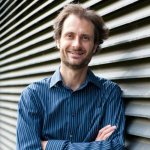
Dr Daniel Whelligan
Senior Lecturer in Organic/Medicinal Chemistry
About my research
Areas of specialism: Design and synthesis of small molecule probes to address questions in biology, including inhibitors of DNA repair enzymes and the probe molecules to enable lead discovery assays for Buruli ulcer.
Medical and health indications and disease stages: Organ failure, stroke, chemotherapy side effects, Buruli ulcer.
Associated research centres and groups: School of Chemistry and Chemical Engineering
Associated colleagues: Dr Ruan Elliott, Dr Lisiane Meira, Dr Rachel Simmonds.
Research funding and collaborators: University of Surrey and EPSRC PhD Studentships, Peptide Protein Research Ltd CASE Studentship.

Research at Surrey
Research here at the University of Surrey seeks to answer global challenges, drive innovation and deliver real-world impact. We are working in various areas of research including lifelong health, sustainability and artificial intelligence.









